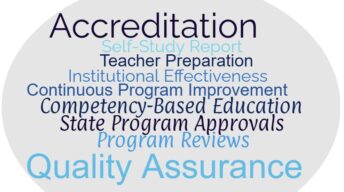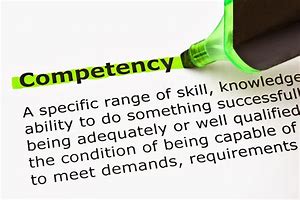Competency-Based Education (CBE) has really started gaining the attention of P-12 school districts, colleges and universities, and state departments of education in recent years. CBE emphasizes demonstrated learning over traditional seat time, and it offers a more flexible way to support students achieve their educational goals.
We can talk about the benefits of CBE and we can describe its attributes. However, it seems that there are numerous definitions of the term that while well-intentioned are lacking or are not always hitting the mark. For example, the Council of Chief State School Officers (CCSSO) developed a working definition of the term competency in 2011; that definition identifies five major components that must be present in a competency-based educational model. While I congratulate the CCSSO for their work in this area I would encourage them to revisit what they mean by competency. Given that this organization leads policies and practices of departments of education and P-12 school districts across the nation, it is important to have a current, accurate, and clear definition. I’ve taken the CCSSO’s definition and have offered a few questions as food for thought in order to advance the conversation:
- Students advance upon demonstrated mastery.
-
- Advance in what way? To the next assessment? To the next chapter or unit? To the next course?
- How is mastery demonstrated? Through what form(s) of assessment?
- Is demonstrating mastery really the same as demonstrating competency?
- Competencies include explicit, measurable, transferable learning objectives that empower students.
-
- Do competencies truly include learning objectives, or are those LOs created as a measurable subset of the competencies?
- How are learning objectives transferable? Transferable to what?
- What do competencies that empower students look like? How would we identify them, as compared to competencies that do not empower students? Empower in what way(s)?
- From what source(s) are competencies derived?
- Assessment is meaningful and a positive learning experience for students.
-
- Meaningful to whom? Learners? Educators? Parents? Educational agencies?
- Meaningful in what way(s)?
- Must all assessments be deemed as positive learning experiences for students?
- What benchmark(s) should be used in order to judge each assessment’s merit in this regard?
- How are educators able to ensure that assessments are of high-quality?
- Students receive rapid, differentiated support based on their individual learning needs.
-
- What is the definition of rapid support? Is this truly intended to be time-bound?
- What would be the source of this support? From a teacher or designee? From a software application or AI device?
- Learning outcomes emphasize competencies that include application and creation of knowledge along with the development of important skills and dispositions.
-
- Should learning outcomes that comprise competencies represent each level of Bloom’s Taxonomy, thereby requiring students to demonstrate what they know and are able to do at each cognitive level (knowledge, comprehension, application, analysis, evaluation, synthesis)?
- How might learning outcomes include the development of dispositions? What might that look like in measurable terms? Which dispositions?
This is just a partial list of questions that must be answered by the CCSSO as they revisit what they mean by competency-based education. Their definition will steer how CBE is implemented in school districts and state departments of education for years to come and it’s important to get it right.
###
Dr. Roberta Ross-Fisher is a national leader in quality assurance, educator preparation, and empowerment-based learning. She supports educational institutions and non-profit agencies in areas such as accreditation, competency-based education, and teacher/school leader prep programs design. Roberta also writes about academic excellence and can be contacted for consultations, webinars, and on-site workshops through her site (www.robertarossfisher.com).

